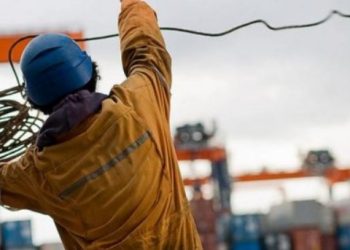–
Once again, the shipping industry is faced with problems involving the implementation of new requirements which have been introduced. However, this time the requirements have not been established by the mechanisms of the International Maritime Organisation (IMO), but by the European Union.
An EU Directive has set the sulphur content limit for marine fuel to a maximum 0.1 per cent and the clock is ticking for the implementation of the new rule. This is significantly less than the current 1 per cent limit in existing Emission Control Areas (ECAs). As the deadline for its implementation is 1st January 2015, ship owners and operators have less than six months to comply. The deadline for EU member states to enact the Directive into national legislation and put in place enforcement measures has already passed.
Few, if any, would argue that it is not right to reduce the effect of shipping emissions on the environment but the measures need to be realistic and harmonised. As ever with new requirements, it is the ship owner who is left ‘holding the baby’. Ship owners are spending significant sums of money on compliant fuels, changeover systems, and pollution abatement technologies such as flue gas scrubbers. However, this technology has only just become available and there are fears in the industry that it is unproven in practice. There are also fears about the availability of the distillate fuels which ensure low sulphur content. Ship owners would appreciate some certainty that the authorities in each member state will act appropriately and uniformly in their approach to the EU regulation and its enforcement.
How will compliance be ensured by Port State Control? Ship owners have spent vast amounts of money on available technologies to achieve the sulphur limits, but can they have confidence in the testing regimes used in European ports within the Emission Control Areas to verify compliance? Furthermore, will control be consistent from port to port or State to State? I can offer no solution to this problem, but will watch with interest and genuinely empathise with ship owners and operators.
The IMO has requested that the implementation of these requirements should have a degree of flexibility, to allow companies to transition into the new era without damaging their business. Many ship owners’ associations are lobbying for a stay of execution; or at least for fair, realistic and harmonised implementation of the Directive. Let’s hope their voices are heard.
On a more positive note, I have recently returned from the Maritime Logistics and Energy week in Liverpool, which formed part of the UK’s International Festival for Business. During a very busy week I was involved in debates about maritime issues, logistics, supply chain, and the re-emergence of the Mersey and Manchester ship canal as a super port. It is easy to see why this would work: The port is centrally located for distribution across the UK mainland, and has the added benefit of being outside of any Emission Control Area. In light of the above problems, the re-emergence of the super port makes perfect sense to me.
Dick Welsh
Directorof Isle of Man Ship Registry
webiste IOM Ship Registry
Above article has been initially published in whereyoucan.com and has reproduced here with kind permission





























































